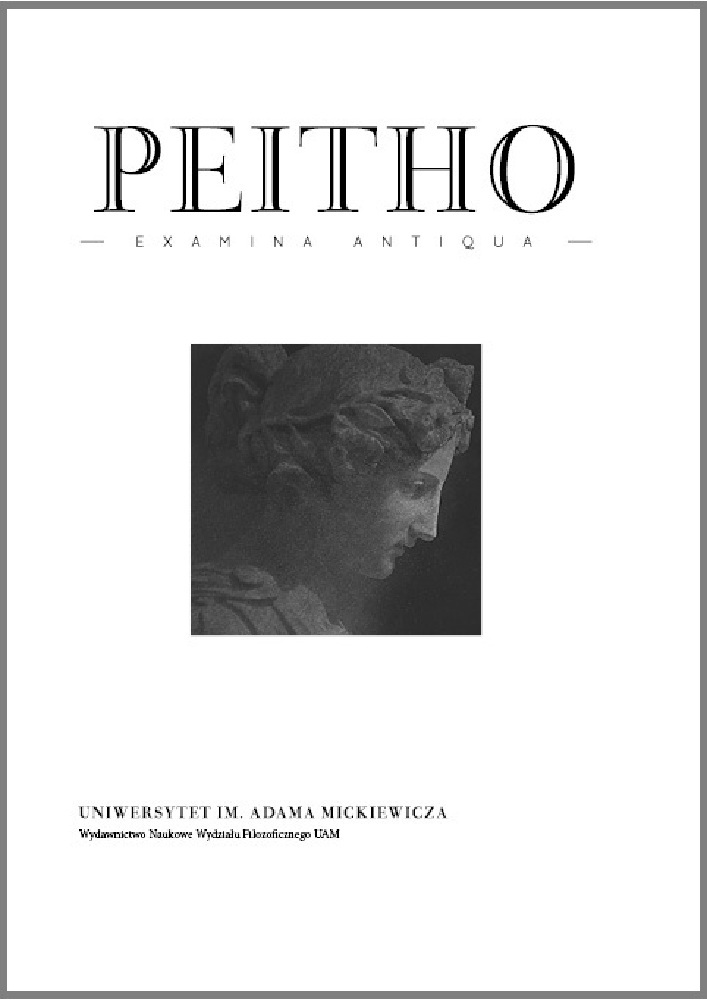Abstract
Euthymia, the founding concept of Democritus’ ethics, is a thing of the soul, as he says himself, an intimate, eminently personal happiness. What place is given, then, to other individuals in this ethics? Can one be happy without the others? In order to answer these two questions the present paper examines the relevant utterances in which references to the others appear and concludes that despite a clear depreciation of the conjugal bond an altruistic dimension is very strong in this ethics and that several important ideas lie behind this concept.
References
Bruseker, G., 2012, « On the conception of poverty in Democritus », Philosophia 42, p. 66–80.
Ciriaci, A., 2013, « Il pensiero politico di Democrito », Philosophia 43, s. 43–59.
Cordero, N. L., 2000, « Démocrite riait-il ? », en: M.-L. Desclos (dir.), Le rire des Grecs, Grenoble, p. 227–239.
Dellis, I. G., 2001, « The idea of cosmopolitism in Democritus’ thinking », Philosophia 31, p. 90–103.
Diels, H., Kranz, W., 1960, Die Fragmente der Vorsokratiker, Bd. II, Berlin.
Kelessidou, A., 1997, « L’actualité de la notion de démocratie chez Démocrite et Archytas », Philosophia 27, p. 314–322.
Leszl, W., 2009, I primi atomisti. I testi in traduzione italiana, Firenze.
Motte, A., 1984, « Le nécessaire, le naturel et l’agir humain selon Démocrite », en: L. G. Benakēs (ed.), Proccedings of the 1st International Congress on Democritus, Xanthi, 1984, p. 339–345.
Motte, A., 2008, « L’invention de la phronèsis par Démocrite », en: D. Lories, L. Rizzerio, (dir.), Le jugement pratique. Autour de la notion de phronèsis, Paris, p. 75–104.
Salem, J., 1996, Grains de poussière dans un rayon de soleil, Paris.
License
Peitho provides immediate open access to its content on the principle that making research freely available to the public supports a greater global exchange of knowledge.
